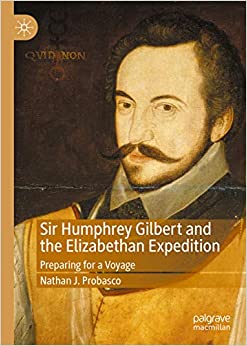This book examines the 1583 voyage of Sir Humphrey Gilbert to North America. This was England's first attempt at colonization beyond the British Isles, yet it has not been subject to thorough scholarly analysis for more than 70 years. An exhaustive examination of the voyage reveals the complexity and preparedness of this and similar early modern colonizing expeditions. Prominent Elizabethans assisted Gilbert by researching and investing in his expedition: the Printing Revolution was critical to their plans, as Gilbert’s supporters traveled throughout England with promotional literature proving England’s claim to North America. Gilbert’s experts used maps and charts to publicize and navigate, while his pilots experimented with new navigating tools and practices.
Though he failed to establish a settlement, Gilbert created a blueprint for later Stuart colonizers who achieved his vision of a British Empire in the Western Hemisphere. This book clarifies the role of cartography, natural science, and promotional literature in Elizabethan colonization and elucidates the preparation stages of early modern colonizing voyages.
Though he failed to establish a settlement, Gilbert created a blueprint for later Stuart colonizers who achieved his vision of a British Empire in the Western Hemisphere. This book clarifies the role of cartography, natural science, and promotional literature in Elizabethan colonization and elucidates the preparation stages of early modern colonizing voyages.











